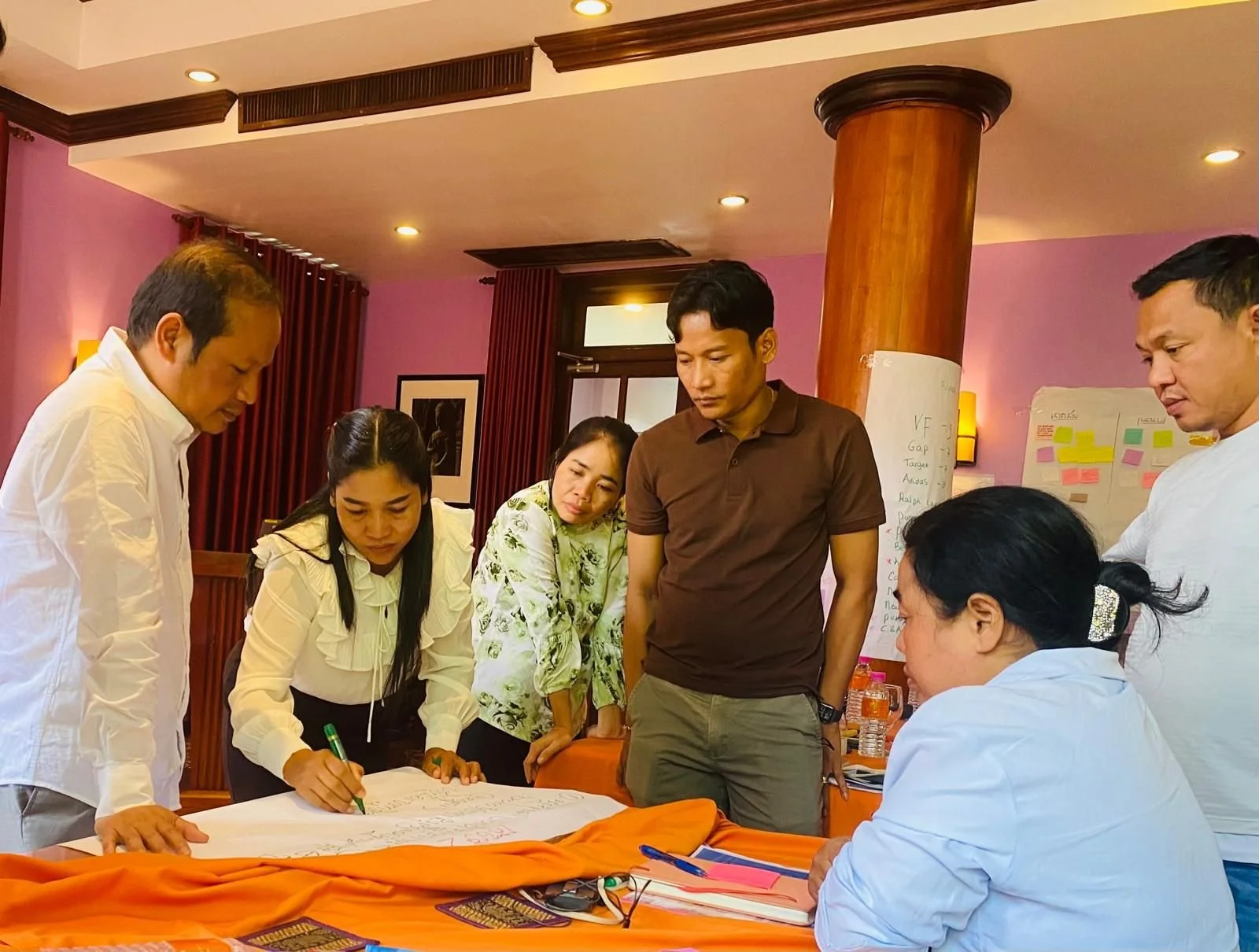Spotlight on Cambodia: Local collaboration for stronger wage negotiations
Local action is where real change begins. That’s why STITCH is launching a new series highlighting the work of our consortium and local partners in the production countries where we operate. From building trust between workers and suppliers to strengthening human rights due diligence (HRDD) systems, these stories show what progress looks like in practice—sometimes partial, often hard-won, and always rooted in local expertise and commitment.
Our first spotlight takes us to Cambodia, where STITCH partner CNV Internationaal is working closely with six local trade unions. Together, they’re collecting and analysing data through the Fair Work Monitor to support annual wage negotiations in the garment industry.
STITCH members from the CNV Internationaal team with representatives of garment unions in Cambodia
“Three years ago, we began collecting data for the Fair Work Monitor, and it has been an empowering journey ever since,” says Yang Sophorn, President of CATU (Cambodian Alliance of Trade Unions). “Not only does it give us access to valuable data, but it also creates a space for unions to come together and discuss strategies for improving wages.”
Until recently, unions often worked in silos—collecting their own data, often on paper, and entering negotiations with limited leverage. The STITCH partnership helped shift that dynamic. Today, data from 98 factories where the unions are active is collected and analysed jointly. That information feeds into Cambodia’s annual minimum wage negotiations and is also shared with broader industry stakeholders, including through the Fair Wear Human Rights Due Diligence (HRDD) Facilitation Hub with the aim to help brands to carry out worker-informed HRDD.
“During our recent workshop, we looked closely at the data with union representatives,” explains Isabelle de Lijser from CNV Internationaal. “We discussed the economic outlook for Cambodia, the uncertainty around US tariffs, and how unions can build stronger arguments for wage increases. Together, we developed an action plan for the upcoming negotiations and for engaging brands directly.”
STITCH 2-day workshop with Cambodian garment unions to discuss the latest Fair Work Monitor results in Siem Reap, Cambodia
It’s not easy work. But the progress is real, and it’s driven by local expertise, shared strategies, and a commitment to improving conditions from the ground up.


